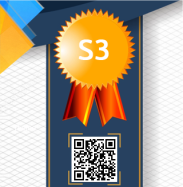THE IMPACTS OF MODELED-READING STRATEGY ON STUDENTS’ REASONING SKILL ABILITY
Abstract
Keywords
Full Text:
PDFReferences
A. Gandimathi, and N. Zarei, The impact of critical thinking on learning English language. Asian Journal of Social Science Research, 1(8), 2018, p. 1-10.
A. Mackey & S.M. Gass, Second Language Research: Approachology and Design. New Jersey: Lawrence Erlbaum Associates, 2005.
Anas Sudijono. Pengantar Evaluasi Pendidikan. Jakarta: Rajawali Pers, 2011.
Balajahty and Wade. Strugling reader : assessment and instruction in grade K-6. New York: A division of Guilford Publisher, 2003.
David Nunan, Practical English Language Teaching. Singapore: The McGrow Hill Education Asia, 2003.
Derya Can, The Mediator Effect of Reading Comprehension in the Relationship between Logical Reasoning and Word Problem Solving. Participatory Educational Research, 7(3), 2020, p. 230-246.
D. H. Schunk, & B. J. Zimmerman, Developing self-efficacious readers and writers: The role of social and self-regulating processes. In J. T. Guthrie & A. Wigfield (Eds.),
Reading engagement: Motivating readers through integrated instruction (pp. 34–50).
Newark, Del: International Reading Association, 1997.
E.O., Keene, and S. Zimmermann, Mosaic of Thought: The Power of Comprehension Strategy Instruction (2nd Ed). Portsmouth, NH: Heinemann, 2007.
D. Widdowson, R. Dixon, & D. Moore, The effects of teacher modeling of silent
reading on students’ engagement during sustained silent reading. Educational Psychology, 1996, 16(2), p. 171–180.
H. D, Brown, Language assessment: principles and classroom practices. San Fransisco: San Fransisco University Press, 2007.
I.C. Fountas, & G.S.Pinnell, Guided Reading: Good First Teaching for All Children. Portsmouth: Heinemann, 2001.
John Dewey, Democracy and Education, New York. Macmillan). If you see john Dewey, tell him we did it. Educational Theory, 1916, 37(2), 145-152.
J.M. Burkins, & M. M. Croft, Preventing misguided reading: New strategies for guided reading teacher. Newark: International Reading Association, 2010.
Judy Tilson Brunner, Now I Get, Differentiate, Engage, and Read for deeper meaning. New York: Rowmand & Littlefield Publiser, 2012.
M. L. Pluck., E. Ghafari, T. Glynn & S. McNaughton, Teacher and parent modeling of recreational reading. New Zealand Journal of Educational Studies, 1984, 19(2), p, 114–123.
R. Anderson, P. Wilson, P., & L. Fielding, “Growth in reading and how children spend their times outside of school”, Reading Research Quarterly, 23, 1988, p. 285–303.
Seyler. The Reading Context, Developing College Reading Skills. New York: Northern Virginia Community College, 2004.
S. Hill, Developing early literacy: Assessment and teaching (2nd Ed.). Hong Kong: Eleanor Curtain Publishing, 2015.
S. J. Pape, Middle school children’s problem-solving behavior: A cognitive analysis from a reading comprehension perspective. Journal for Research in Mathematics Education, 35, 2004, p. 187–219.
S. T. Krashen, S.T. Principles and Practice in Second Language Acquisition. Oxford: Pergamon, 1982.
T. Jones, & R. Wills, Reading aloud, silent reading and “booktalk” in upper primary
school classes: Teachers’ reading programs, motivations and objectives. Retrieved June
, 2005, from http://www.aare.edu.au/04pap/jon04484.pdf
T. A. Polk, & A. Newell, Deduction as verbal reasoning. Psychological Review, 102, 1995, p. 533–566.
DOI: http://dx.doi.org/10.22373/jid.v23i1.12348
Refbacks
- There are currently no refbacks.
except where otherwise noted.



